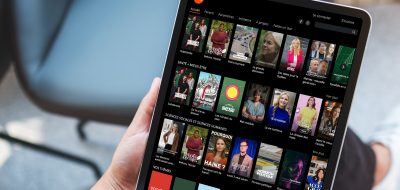Your organization is likely already using video for external communications — your marketing teams are regularly creating and publishing videos to drive awareness, engagement and conversion online. But when it comes to communicating internally, organizations are often stuck using more traditional tools. In most cases, HR updates are still sent via email and training sessions often mean investing in sending employees to headquarters.
However, let’s consider the power of video for a moment. It’s about engaging and creating connections with your audience. So why wouldn’t your organization be using it beyond marketing to help strengthen engagement with one of your most important audiences — your employees — while also driving business results, especially considering more than half (54%) of employees now expect to see video inside the organization and producing video is more cost effective than ever? Whether you want to shoot and edit content yourself, or outsource the whole workflow to an online video specialist, you can do it all without a big budget.
If you’re not already using video internally, here are a few places to start implementing video effectively across your organization.
CORPORATE COMMUNICATIONS
As teams become more global and dispersed, video is a great way to keep everyone up to date on the latest company news, while helping them remain connected. It also ensures information isn’t lost in translation, with everyone receiving the same messaging at the same time. Live streaming internal meetings like CEO addresses, earnings calls, and executive town halls helps keep your team informed while also putting a personal face on company messages. Organizations like SAS are already doing this and reaping the benefits.
Deloitte is also championing this space. To humanize its global brand with its 244,400 employees, the company launched Deloitte TV Network, a video portal that’s become a place for employees and executives to connect on a more personal level. The page features videos of impromptu conversation between hosts and Deloitte management, giving employees a sneak peek into the everyday personalities of their leadership staff. The portal has been a huge success, with Deloitte reporting employee engagement was through the roof with a 75 percent play rate among company employees — a statistic that’s exceeded all initial expectations.
TRAINING
Regular training is important for your team to grow in their role. But it can be a struggle to get everyone in the room at the same time. That’s where video comes in. Whether it’s live streamed or on-demand, video ensures a consistent message and training experience right across your organization. It also ensures personalization and human interaction is not lost.
But just delivering video is not enough. You need to create an experience that engages and can be internalized by your team. Adding interactive elements such as quizzes, polls or chapterization to your videos can achieve this, turning a one way conversation into a two way dialogue. It also means every click and action is measurable. This allows you to assess how your employees are engaging with the content and plan your content with this in mind. By going beyond view data you have the opportunity to be personalized and highly-targeted as well as truly measure video effectiveness.
Samsung Electronics and Wendy’s are leading the way here having built video hubs for their global workforce on everything from new skill development to product demonstrations.
ONBOARDING
HR teams, video is your secret weapon to reduce onboarding time and foster an emotional connection when welcoming new hires. A hub of on-demand content, such as a welcome video, means new hires can jump online, and get up to speed more quickly and effectively. IT policies and procedures and even department overviews can make for helpful onboarding videos. You can extend this further, using it as an employee directory, giving each new hire an opportunity to introduce themselves to the wider team over video. This will work to help create emotional connections with new hires, introduce company culture and build trust and rapport with executives, while enabling self paced learning and reduced on site training costs.
START SMALL
You need to remember your internal brand is just as important as your external one, so opportunities to connect disperse teams and truly engage all employees should be maximized. Start small by replacing a regular email communication for a video update and progress from there. Remember to also make the most of the analytics behind your videos. This will help you better understand your employees and better communicate with them through tailored content and formats.




